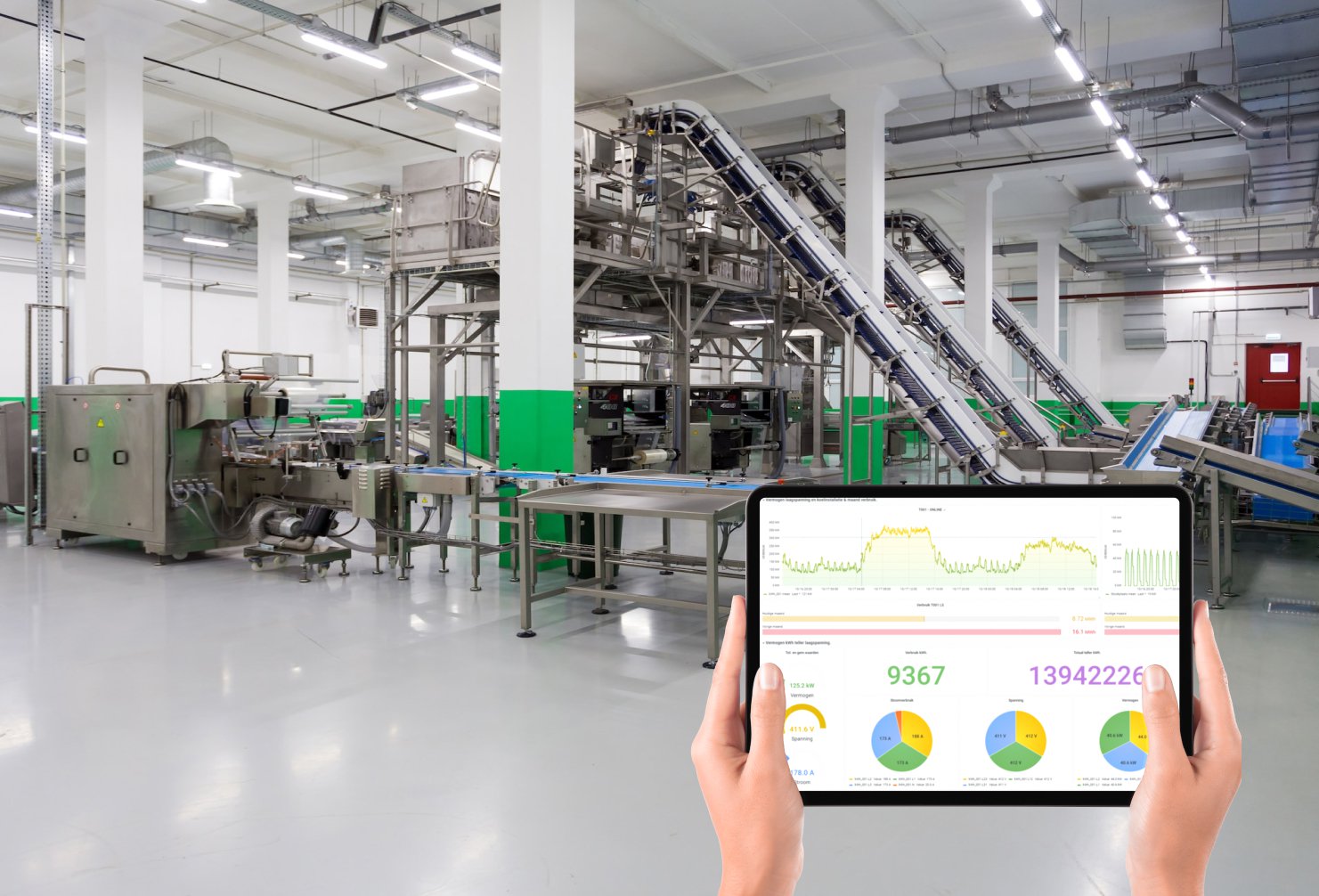Maximizing Quality Through Energy-Efficient Production: A Game-Changer for Manufacturers"

Energy Intelligence
In the manufacturing sector, energy consumption is not just a line item on the balance sheet; it's a crucial factor impacting the quality of production. With the rise of energy intelligence technology, companies now have a powerful tool to optimize their energy use, ensuring more efficient and quality-driven production processes. This blog explores why and how efficient energy consumption leads to higher quality production, offering insights into turning energy efficiency into a competitive advantage.

1. Understanding & optimizing energy use in production: the first step to quality enhancement
Energy efficiency in manufacturing begins with a comprehensive understanding of energy use in production environments. Energy intelligence technology provides real-time data and analytics, enabling manufacturers to identify energy-intensive processes and areas for improvement. By pinpointing inefficiencies, companies can implement targeted solutions, such as retrofitting equipment or optimizing operational schedules, leading to significant energy savings and a corresponding boost in production quality.
2. Start-up processes in production: the key to consistent quality
The start-up phase of production is often where energy wastage is most pronounced. Energy intelligence systems enable precise control over these start-up processes, ensuring they are as energy-efficient as possible. This control not only reduces energy consumption but also minimizes the wear and tear on machinery, leading to more consistent quality output and longer equipment lifespans.
3. Enhanced process control to minimize resource loss
In manufacturing, any loss of resources is a double blow, affecting both costs and product quality. Energy intelligence facilitates meticulous process control, allowing for fine-tuning of production processes to avoid unnecessary resource losses. By using energy more efficiently, manufacturers can ensure that every watt contributes directly to creating a high-quality product, reducing waste and enhancing overall production efficiency.
4. Structuring production processes for peak energy efficiency
An often-overlooked aspect of energy efficiency is the structuring of production processes, including servicing and maintenance cycles. Energy intelligence technology can optimize these cycles, ensuring that machinery is maintained at the right time to prevent energy wastage due to underperforming equipment. Regular, data-driven maintenance ensures machines operate at peak efficiency, directly translating to higher quality production.
5. Building a sustainable and quality-centric production ecosystem
Embracing energy efficiency is not just about cost savings; it's about building a sustainable production ecosystem. Energy-efficient manufacturing processes reduce the environmental footprint of production, meeting the growing demand for sustainable practices from consumers and stakeholders. Moreover, this commitment to sustainability often correlates with higher quality products, as it reflects a company's dedication to excellence and innovation.
Conclusion:
Efficient energy consumption in the manufacturing sector is more than an operational choice; it's a strategic decision that affects every aspect of production. By harnessing the power of energy intelligence technology, manufacturers can achieve a delicate balance between energy efficiency and quality production. This balance is not just beneficial for the bottom line; it positions companies as leaders in both sustainability and product excellence.
Call to Action:
Are you ready to transform your manufacturing processes with intelligent energy solutions? Contact us to discover how our energy intelligence technology can help you achieve more efficient, high-quality production. Let's work together to create a sustainable future powered by innovation.. Het energieverbruik in de productie begrijpen en optimaliseren: de eerste stap naar kwaliteitsverbetering
Energie-efficiëntie in productie begint met een goede kennis van het energieverbruik in je eigen productieomgeving. Energie-intelligentie technologie verwerkt realtime gegevens en maakt analyses, waardoor je als fabrikant energie-intensieve processen kunt identificeren die voor verbetering vatbaar zijn. Door inefficiënties te lokaliseren en te definiëren kan je gerichte oplossingen implementeren, zoals het aanpassen van assets of het optimaliseren van operationele schema's. Kleine aanpassingen kunnen leiden tot aanzienlijke energiebesparingen en een overeenkomstige verbetering van de productiekwaliteit.
2. Opstartprocessen in de productie: de sleutel tot constante kwaliteit
De opstartfase van de productie is vaak de fase waarin de energieverspilling het grootst is. Met slimme energiesystemen kunnen deze opstartprocessen nauwkeurig worden geregeld, zodat ze zo energie-efficiënt mogelijk verlopen. Deze controle vermindert niet alleen het energieverbruik, maar minimaliseert ook de slijtage van machines, wat leidt tot een constantere kwaliteit en een langere levensduur van je machine assets.
3. Verbeterde procesbesturing om verlies van middelen tot een minimum te beperken
In de productie is elk verlies van middelen een dubbele klap, die zowel de kosten als de productkwaliteit beïnvloedt. Energie-intelligentie vergemakkelijkt nauwgezette procesbesturing, waardoor productieprocessen nauwkeurig kunnen worden afgesteld om onnodig verlies van productie assets te voorkomen. Door efficiënter gebruik te maken van energie kan je als fabrikant ervoor zorgen dat elke watt aan energie direct bijdraagt aan het maken van een product van hoge kwaliteit, waardoor verspilling wordt tegengegaan en de efficiëntie van je volledige productie verbetert.
4. Productieprocessen structureren voor maximale energie-efficiëntie
Een aspect van energie-efficiëntie dat vaak over het hoofd wordt gezien, is de structurering van productieprocessen, inclusief service- en onderhoudscycli. Energie-intelligentie technologie kan deze cycli optimaliseren en ervoor zorgen dat machines op het juiste moment worden onderhouden om energieverspilling te voorkomen. Regelmatig, datagestuurd onderhoud zorgt ervoor dat machines piek efficiënt werken, wat zich direct vertaalt in een hogere productiekwaliteit.
5. Bouwen aan een duurzaam en kwaliteitsgericht productie-ecosysteem
Het omarmen van energie-efficiëntie gaat niet alleen over kostenbesparingen; het gaat over het opbouwen van een duurzaam productie-ecosysteem. Energie-efficiënte productieprocessen verminderen de ecologische voetafdruk en komen tegemoet aan de groeiende vraag van consumenten en stakeholders naar duurzame toepassingen. Bovendien heeft de focus op duurzaamheid bij bedrijven vaak een positieve correlatie met producten van hogere kwaliteit, en het daarnaast ook de toewijding aan excellence en innovatie van een bedrijf weerspiegelt.
Conclusie:
Efficiënt energieverbruik in de productiesector is meer dan een operationele keuze; het is een strategische beslissing die elk aspect van de productie beïnvloedt. Door gebruik te maken van de kracht van energie-intelligente technologie kunnen fabrikanten een delicaat evenwicht bereiken tussen energie-efficiëntie en kwaliteitsproductie. Deze